
An interview with former Mossad official Udi Levy about the fate of ”Project Cassandra,” the successful U.S.-Israel effort to sever Hezbollah’s narcotics revenue, the project that was shut down as part of the Obama administration’s effort to secure the original Iran deal.
The negotiations in Vienna aiming to revive the Iranian nuclear deal have taken Udi Levy back in time to 2015, the year world powers signed the original agreement with Tehran—eliminating “Project Cassandra,” the pinnacle of Levy’s security career, in the process.
Back then, Levy headed a secret Mossad unit specializing in economic warfare. It worked together with the Israel Police and the U.S. Drug Enforcement Administration to undercut Lebanese terror group Hezbollah’s drug trafficking revenues.
For almost a decade, from 2006 to 2015, U.S. agents—with the help of Israeli intelligence—conducted busts, confiscated billions of dollars and arrested senior Hezbollah members, choking the organization’s cash pipeline.
But then China, France, Russia, Britain and Germany—led by the United States under former President Barack Obama—reached an agreement with the ayatollahs, and in order not to upset Iran—Hezbollah’s “mentor”—decided to end “Project Cassandra.”
“To this day, it hurts me, because I believe that in the modern era, economic warfare is the ultimate weapon,” said Levy. “We wanted to continue at full speed, but the Americans said, ‘There is an agreement with the Iranians, it will hurt Obama’s politics.” He added: “And you’d think that Israel would get involved. ‘If Americans don’t want this, then we are moving on.’”
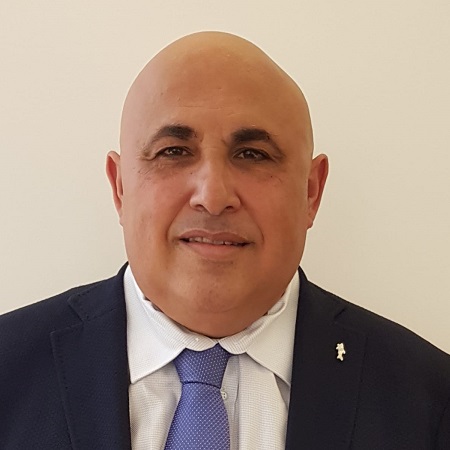
Levy began his career in the Israel Defense Force’s elite 8200 intelligence unit. Immediately after the first Intifada, which ended in 1993, he was recruited by the Civil Administration in Judea and Samaria, where he became an Arab affairs adviser under the Defense Ministry.
“Hamas has built a huge funding mechanism. Today, it has companies abroad that generate about $500 million annually. Legitimate companies that deal with real estate, pharmaceuticals and trade, among other things,” said Levy. “As an Israeli, you can’t take it unless you prevent the madness,” he added.
While the common perception is that it is the suicide bombers who need to be stopped, the truth is that such individuals are easy to recruit, said Levy.
“They are told, ‘In death, you will find glory and your family will be taken care of.’ If we want the fighting to stop, we must stop the people who make such promises,” he said.
Levy uncovered the funding sources underwriting Hamas’s “vast” terror infrastructure and presented the data to those in authority at the time.
“They were intrigued,” he said, but deputy Shin Bet head Gideon Ezra wasn’t interested in dealing with “associations, clinics, and schools.”
“I was a young IDF major at the time, and replied, “You do not understand… this system will constantly produce people, and you will have to constantly fight them. Let’s fight the infrastructure,’” said Levy.
However, the Shin Bet replied that the Civil Administration or the Coordinator of Government Activities in the Territories could deal with the matter if they were so inclined.
Enter Meir Dagan
Indeed, in 1993, the Civil Administration initiated “Operation Biur Chametz” (“burning the chametz,” a reference to the elimination of leavened foods carried out ahead of Passover). The goal of the operation was to confiscate or shut down Hamas assets within the civilian infrastructure: mosques, associations, schools and welfare institutions. The legendary Meir Dagan, who was head of the IDF General Staff’s Operations Directorate at the time and would later become director of the Mossad, heard about the young Civil Administration officer and asked to be briefed.
“Dagan, warrior that he was, was also an extraordinarily open person,” Levy recalled. “He understood that the IDF had a faulty concept. That infrastructure must be fought, otherwise, it will keep creating new soldiers for Hamas.
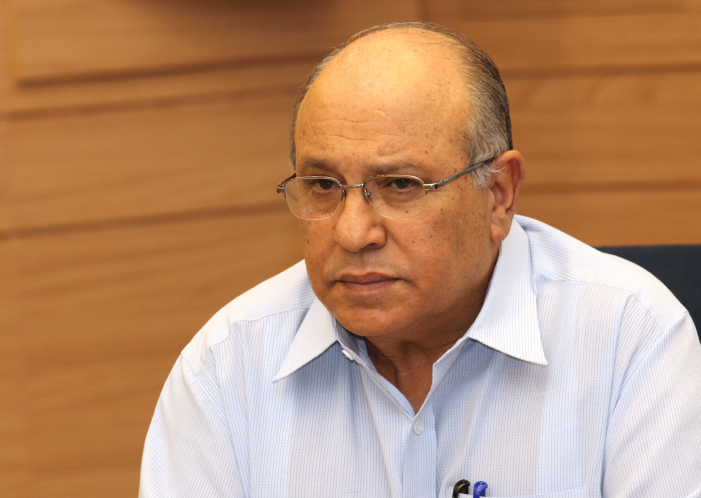
June 1, 2010. Photo by Yossi Zamir / Flash90.
“When he was [later] appointed adviser to the head of the Operations Directorate, he called me and said, ‘I want you to come and brief Deputy Chief of Staff Matan Vilnai on your work.’
When I arrived, Vilnai told me, “You’re a young man, and I was a major general in the Southern Command. I think I know everything there is to know about Hamas. You have 20 minutes to convince me there is something new to learn.’ We ended up speaking for three hours.”
Following that meeting, said Levy, Vilnai asked him to attend a weekly briefing on Hamas, together with the Shin Bet and the Military Intelligence Directorate.
“At the time, I was not on good terms with the Shin Bet. I said that hundreds of millions of dollars were being funneled into Hamas, while the agency claimed it was only several million. I told Vilnai, ‘You should know that if I attend the briefings, the Shin Bet will oppose me with all its might.’ And that is exactly what happened,” he said.
Shortly after the meeting with Vilnai, Dagan also had him brief then-Prime Minister Yitzhak Rabin, he added.
In 1995, Dagan retired from the IDF after 32 years of service, and a year later joined the National Security Council’s Counterterrorism Bureau. That same year, Dagan contacted Levy and asked him about his plans for the future. Levy told him that he had achieved the rank of lieutenant colonel and was on the way to becoming a full colonel. Dagan asked if he wanted to join the bureau to pursue his vision.
“Sometimes in life, we make decisions based on our gut feeling, without thinking, and they turn out to be life-changing. I immediately said yes,” Levy recalled.
From that point forward, Levy embarked on a twofold job, the first as Dagan’s personal assistant, helping him oversee “secret missions … about which I cannot, of course, tell you,” and the second as the leader of an economic warfare effort against terrorist organizations.
Dagan resigned in 1999 due to a disagreement with then-Prime Minister Ehud Barak. Disappointed, Levy wanted to leave as well but was asked by Dagan to stay. The two kept in touch, and Dagan asked Levy to prepare documents on the war on terror, economic warfare and Palestinian Authority policy for Ariel Sharon, who was running for the premiership at the time.
In March 2001 Sharon was elected prime minister and decided to establish a special unit focused on targeting terrorists’ economic infrastructure. It was headed by Dagan, with Levy as his right-hand man. The unit originally reported directly to the prime minister, and eventually became part of the Mossad.
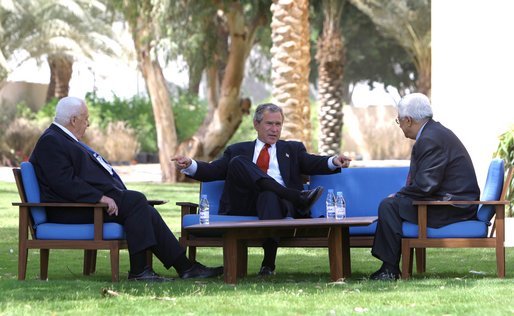
“A few weeks ago Israel was shocked by the NSO police spying scandal, but that’s nothing compared to the powers Sharon gave the unit,” said Levy. “We were allowed to get information from banks and all authorities in the country. We were allowed to use the authorities. We were allowed to act vis-à-vis any authority in the world. We only reported to Sharon, he was the only one to approve the activities, and the unit was clandestine.
At first, said Levy, the Israeli defense establishment wanted the unit to fail.
“They didn’t agree with our views. But slowly, slowly, we built a concept. I brought in the Tax Authority, the Justice Ministry, the police, the Prison Service. These didn’t want to talk with those, and those didn’t want to meet with these,” he said.
“Civilian institutions have a lot of information, but no intelligence. Intelligence institutions have a lot of intelligence, but don’t know what to do with it at all,” he added.
Sharon and Dagan were motivated by a desire to fight terrorism funding, “but also [by] their abhorrence for [then-PLO chairman] Yasser Arafat,” he said.
“Their goal was to destroy Arafat economically. Not the [Palestinian] Authority, but Arafat himself. We knew he had $6 million in Europe, the Arab countries and Africa. That was the goal. You should have seen their faces when they spoke about Arafat, it was like speaking about Hitler,” he recalled.
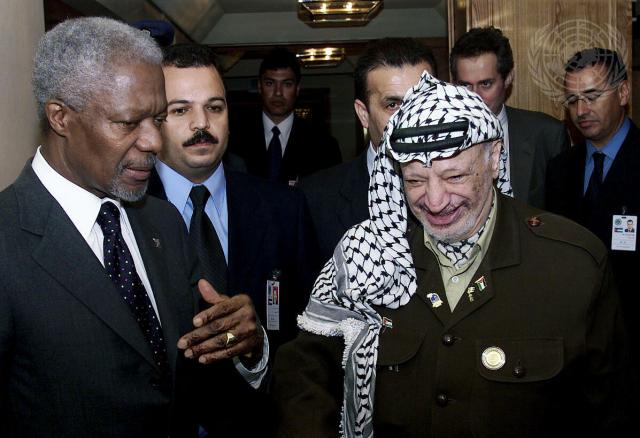
In 2002, Sharon appointed Dagan head of the Mossad, and he quickly drafted Levy into the agency, where he would head a new unit.
“The new unit dealt with economic warfare against terrorist organizations and countries that sponsor terrorism,” said Levy. “We started with Iran,” but “expanded our work scope significantly,” he added.
“Meir wanted to add the economic aspect to everything, but the Mossad didn’t understand, because the Mossad knows how to recruit and kill. But we produced results.”
Q: Can you give us an example?
A: We did tons of things, and it was all a secret. There were days when I felt like James Bond. We added as much as possible to the economic warfare mechanism. We filed lawsuits against entities that helped terrorist organizations transfer money, mainly banks around the globe. We released the dogs into the forest, gave them intelligence, and on behalf of the victims of terrorism, began to sue.
Meir used to say, “What is intelligence worth if you don’t use it? Give it to lawyers to file lawsuits. Get on a plane and see the bank manager, show him these papers so that he will freeze [the bank accounts].” The unit gathered various information, and our approach was that we don’t need to kill, [we] need to stop the money.
For example, when Ehud Olmert became prime minister in April 2006, he was very devoted to this cause.
There were days when I would sit in his office and he would ask me, “How can I help you today?” I would tell him, “I need you to connect me with this or that bank manager.” He would make a phone call to that person, and I would get on the plane with all kinds of intelligence information, sit with CEOs of banks all over the world and show them the material. At the end of the meeting, they would hug me and say, “You’ve saved us.” Two days later, they would freeze the Iranians’ assets.
This is how deterrence should be done. Without killing, without being killed, without the world turning on us, and without IDF officers being investigated by the International Criminal Court.
Taking on Hezbollah
After the 2006 Lebanon War, the Israel Police provided the unit with intelligence that Hezbollah was funding its expansion via drug trafficking, which paved the way for new operations and partnerships.
“Hezbollah recruited IDF officers—mostly Bedouins, but Jews as well—and gave them drugs in return for intelligence,” said Levy.
“The police, which busted the officers and the drugs, were the first to discover this. The Israeli intelligence community insisted that this was incorrect, but I unequivocally said that Hezbollah had become a major global criminal organization, and Dagan agreed with me.”
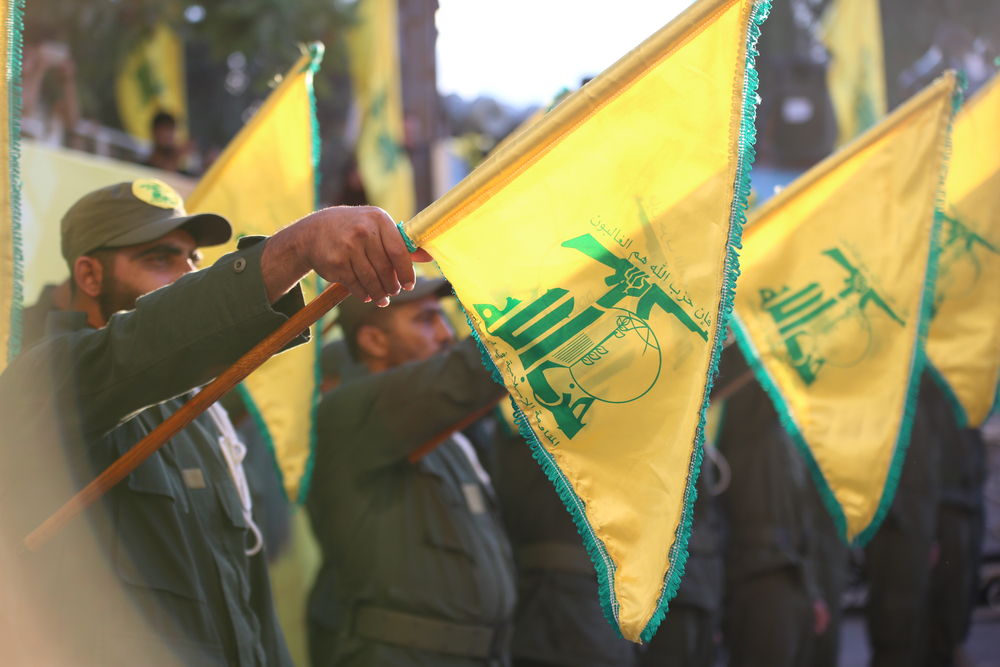
Levy interrogated Hezbollah prisoners jailed in Israel. The scope of the drug operation he uncovered, he said, was monstrous.
“Hezbollah was involved in drug trafficking globally. It gave us an idea of the money that they had access to. Hundreds of millions of dollars.”
He then contacted the U.S. Drug Enforcement Administration.
“As it turns out, the DEA had a lot of information about drug smuggling that they hadn’t linked to Hezbollah, and with us it was the opposite. That’s how we began working on the project together,” he said.
And thus “Project Cassandra”—named for the Trojan priestess in Greek mythology cursed to utter true prophecies but never to be believed—began.
“There was a need for such a project, because the world didn’t treat Hezbollah as a terrorist organization, and we had a hard time dealing with its finances. We thought that if we could show everyone that it was a massive criminal organization, it would be a win-win situation. But to do this, we entered a very complex game in the U.S., where the FBI and the CIA are in charge of fighting the terrorists, and the DEA, a completely different body, is responsible for the war on drugs. The Mossad cooperated on the project with the FBI, CIA and other agencies,” he said.
“The problem with Hamas was that for years, they only fought the organization’s military wing, and no one touched the infrastructure, and today, Hezbollah has hundreds of companies abroad that make them money. It is insane how they planned it.”
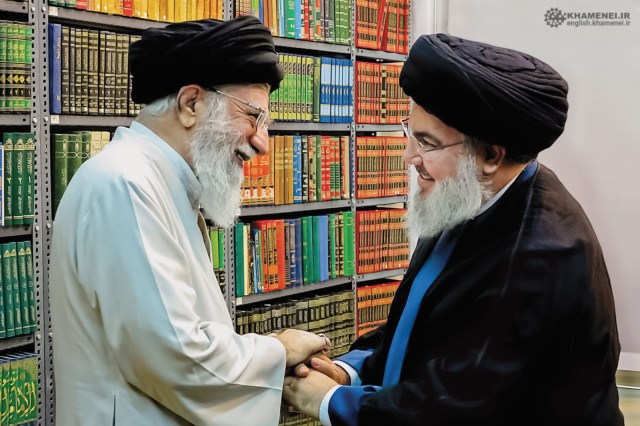
Q: Was Hezbollah concerned?
A: Very—and first and foremost due to the financial aspect. It also completely undermined the organization’s legitimacy in the West. It weakened it. At the time, Hezbollah was in quite a predicament. On the one hand, money from the Iranians dropped dramatically because of the sanctions and then we began the campaign to undercut their drug revenues. The organization was in a crisis. Maintaining such an army, population and global systems requires hundreds of millions of dollars, [not to mention] their fight against Israel. Unfortunately, our efforts were halted. Instead of suffocating Hezbollah’s economic lifeline completely, it is now alive and kicking.
The beginning of the end
In January 2011, when Dagan resigned from the Mossad, Levy also asked to leave. But Tamir Pardo, who took over the agency, convinced him to stay.
“People who were involved in the project began to get hints from the U.S. administration that they should stop,” said Levy. “DEA officials were told ‘not to bother,’ and the cooperation decreased. I am not allowed to visit the U.S. to this day. They are very angry and claim that I acted against [President] Obama,” he said.
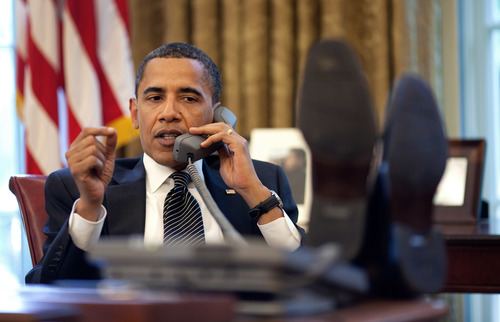
The project might have remained as a file in the Mossad archives if not for Israel filmmaker Duki Dror, who recently created a documentary about “Project Cassandra” for Kan 11, which will air on March 16. Dror conceived the project after reading a Politico article by Josh Meyer about how the Obama administration “let Hezbollah off the hook” when it came to drug trafficking and money laundering.
“I was convinced that ‘Project Cassandra’ had already been made into a movie and that lots of articles had been written about it,” said Dror. “I got in touch with Meyer, a veteran and trustworthy journalist, who told me that after his article was published in 2017, he was accused of criticizing the Obama administration. Although [Donald] Trump was already president by then, the media opposed the story and it did not take off.”
Dror felt it was important that the story be told.
“It not only covers decision-making processes during the [original] Iran nuclear deal, but also the damage some of these decisions caused, enabling drug trade, terrorism and international crime. Americans invested millions in the project, hundreds of people and agents achieved great success, and all of a sudden they were told to stop. This is something that must be exposed.”
“To understand that some things that are truly important are deflected for the sake of politics, and the repercussions could be long-term,” he said.
The story of “Project Cassandra” may be over, as the lion’s share of its operations are now headed by a special division in the Counterterrorism Bureau. Levy currently lectures at Bar Ilan University, in a program that focuses on radical Islam.
But what if the project was resurrected?
“I meet people all over the world because I have accumulated a lot of knowledge on this issue,” said Levy. “I wouldn’t go back to that position because there is a lot of infighting, but I will always be willing to help.”
Levy also believes the state has to up the stakes in terms of economic warfare.
“Look at all the various sting operations in the world, and think about what could happen if a state did that. The state should use all the tools at its disposal to defend itself. It should not be restricted by one concept.”
This will become even more important should the United States sign another nuclear agreement with Iran, he said.
“You’ll see what happens once the Americans sign another deal with Iran—we will be left without tools. I can’t see any prime minister launching any kind of operation, so the only way to significantly disrupt aid to Hezbollah and Hamas is through economic warfare.”
Economic warfare and sanctions are being employed by everyone these days, he said, except for Israel.
“There is no organization that you cannot topple and you can’t convince me otherwise; the fact is that we’ve done it.”
(JNS – This article first appeared in Israel Hayom).